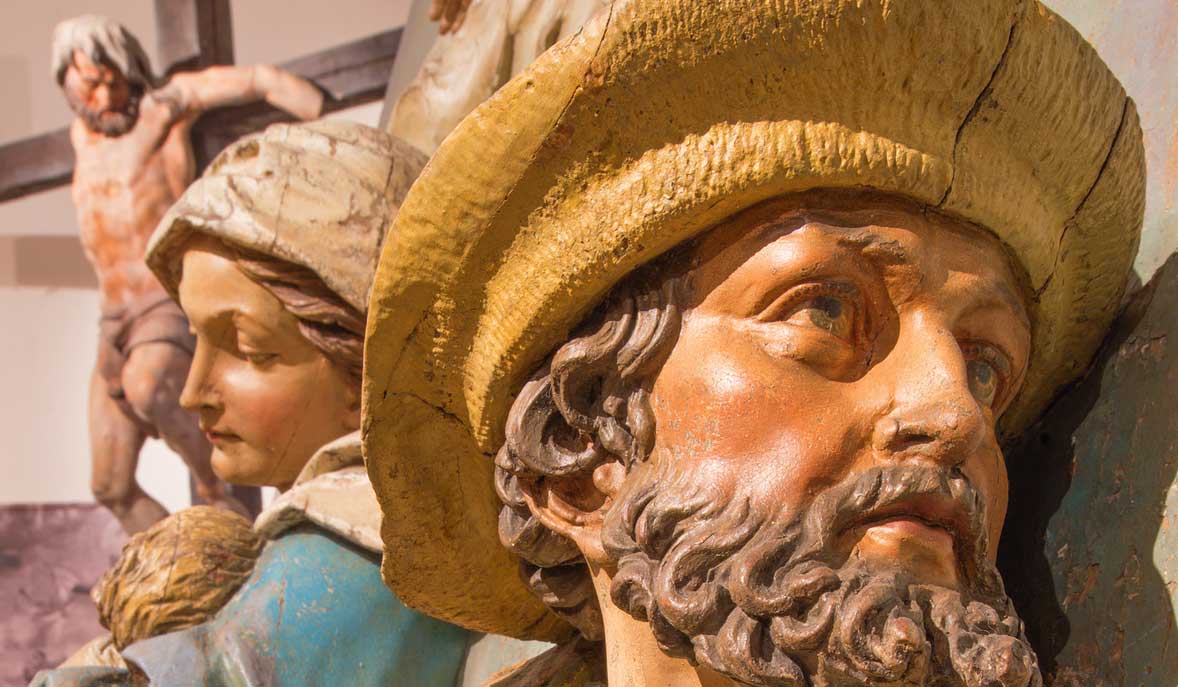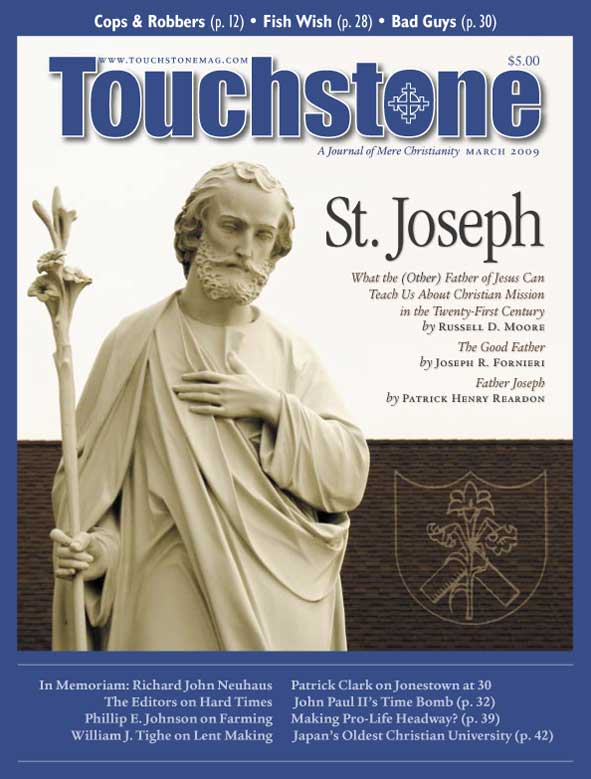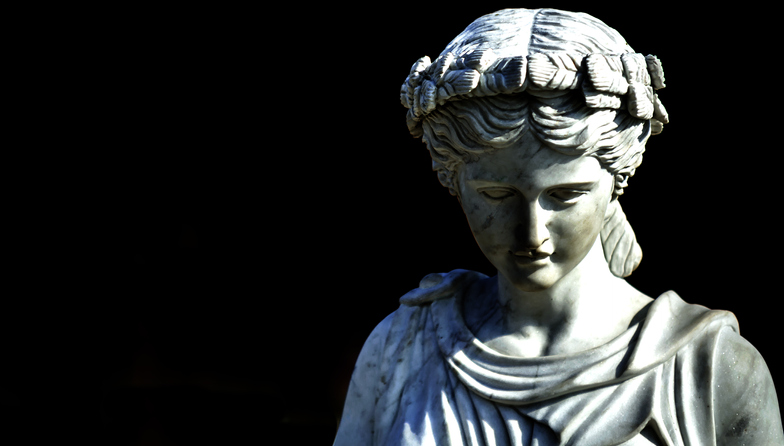View
The Good Father
Joseph R. Fornieri on the Manly Character of St. Joseph
I used to think that St. Patrick’s Day, March 17th, was a special holiday for the Irish kids, while St. Joseph’s Day, March 19th, was reserved for us, the Italian kids. I never fully understood why everybody at my public school (even the non-Catholics) wore green on St. Patrick’s Day, while nothing was done in honor of St. Joseph.
On his feast day, bakeries in my hometown of Rochester, New York, would open their doors to our families who prepared a braided Easter bread, which was then distributed to the poor. Our St. Joseph bread vied with the Irish hot cross buns for Lenten cuisine supremacy. My German pals had their own highly competitive version of Easter Bread— Hefekuchen. Maria Halter’s was heavenly (I can still taste it).
Some parishes provided St. Joseph’s Day tables, which were laden with food, and a statue of St. Joseph surrounded by oranges. We feasted with family and friends. Of course, if your name was “Joseph”—and the odds of this in an Italian-American family were quite high—the day would have special significance for you as a namesake. It was a teaching moment: The extended family would remind you of your responsibility to live up to the standard set by your patron.
St. Joseph has always occupied an important place in the piety of Sicilian-Americans. While I was raised in this tradition, my appreciation of Joseph has deepened over the years. Now the father of two daughters and a husband of seventeen years, I increasingly return to those Old World roots and to Joseph’s example for strength as I confront the unique challenges and responsibilities of middle adult life. I share this essay with those who face similar challenges, especially in these difficult times.
True Manliness
The contemporary decline of manliness in our society parallels the decline of the family. Our reverence for St. Joseph once served as an important reminder of the connection between true manliness and fatherhood and family, a connection that today is increasingly broken. The feminist crusade to replace masculinity with gender neutrality has stripped boys of positive male role models that would inform their moral imaginations and inspire them to fulfill honorably their responsibilities as husbands, fathers, and patriotic citizens.
At one time the absence of a father was viewed as tragic; today it is accepted as a legitimate alternative way to raise children. In some circles, fatherlessness is even planned and welcomed. Our commercial and popular culture ridicules fathers as bloated buffoons, epitomized by the cartoon character Homer Simpson. The “father figure” of our time is no longer an authoritative sage, as he may have been in times gone by. Consider the following versions of masculinity sold to us by today’s mass culture: the haughty CEO, the emasculated wimp, the charming gangster, the prima donna athlete, the psychopathic warrior, the postmodern cynic, and the playboy for whom sex has become sport. Each path descends to the lowest common denominator of vulgarity.
In Manliness, Harvey C. Mansfield decries the gender neutrality of contemporary culture. Unfortunately, this otherwise excellent book fails to mention any Christian models of manliness and the crucial role of Christianity in transforming pagan notions of manliness. It is within this context that I see a particular urgency to reaffirm St. Joseph as a positive masculine role model for our times.
Let us begin by first considering what St. Joseph represented for my ancestors and for generations of Catholics from all ethnic groups. What qualities did he possess that make him worthy of our admiration? We are introduced to Joseph in Matthew’s Gospel, where he is immediately described as “a righteous man.” Significantly, righteousness, the quality of standing in proper relation to God and having the disposition to do his will, is the first, defining virtue of this manly man.
Joseph’s Christian manliness appears through his roles and responsibilities as a righteous man, a foster father, a husband, a provider, and a guardian. In each of these ordinary roles, he showed that honor and humility may be combined in the performance of extraordinary deeds. It is ironic that we take these roles for granted yet fail so miserably at them today, as high rates of abuse, divorce, and illegitimacy testify.
Joseph R. Fornieri is an Associate Professor of Political Science at the Rochester Institute of Technology in Rochester, New York, and the author of Abraham Lincoln’s Political Faith (Northern Illinois University Press) and other writings on Lincoln. He is a Roman Catholic.
subscription options
Order
Print/Online Subscription

Get six issues (one year) of Touchstone PLUS full online access including pdf downloads for only $39.95. That's only $3.34 per month!
Order
Online Only
Subscription

Get a one-year full-access subscription to the Touchstone online archives for only $19.95. That's only $1.66 per month!
bulk subscriptions
Order Touchstone subscriptions in bulk and save $10 per sub! Each subscription includes 6 issues of Touchstone plus full online access to touchstonemag.com—including archives, videos, and pdf downloads of recent issues for only $29.95 each! Great for churches or study groups.
Transactions will be processed on a secure server.
more on fatherhood from the online archives
more from the online archives
calling all readers
Please Donate
"There are magazines worth reading but few worth saving . . . Touchstone is just such a magazine."
—Alice von Hildebrand
"Here we do not concede one square millimeter of territory to falsehood, folly, contemporary sentimentality, or fashion. We speak the truth, and let God be our judge. . . . Touchstone is the one committedly Christian conservative journal."
—Anthony Esolen, Touchstone senior editor













